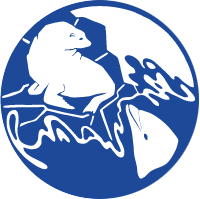 Greetings SMM Members!
Greetings SMM Members!
We are just past a very successful Marine Mammal Conference in Florida an event that signals the coming changing of our SMM Board. It is time for you to exercise one of your most important responsibilities as a member of this Society – casting your vote for candidates standing for elected office. This page will give you a little background on each candidate and we encourage you to take time to read it and perhaps surf the web to find more information about each candidate. They will perform important work on your behalf in the coming years. Regardless of the outcome we thank each of the candidates for being willing to stand and shoulder the responsibility of helping lead the SMM.
President-Elect
The President-elect assume the duties of the President in his/her absence, monitors the Society’s Constitution, Bylaws, and General Operating Policies for consistency and currency and works to choose future conference venues. They assume the Presidency for a term of two years.
Per Berggren, Newcastle University
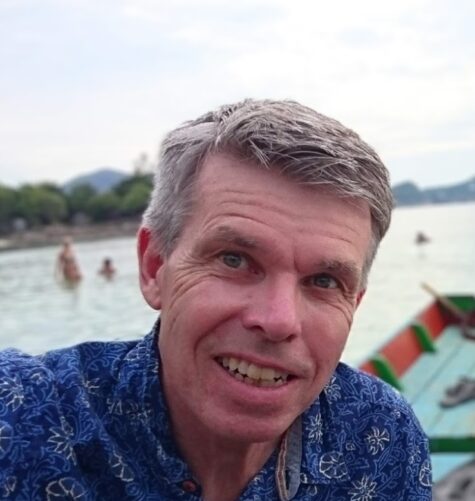 I am a professor in marine megafauna conservation at Newcastle University, UK. I have devoted my career to conservation of data poor species and development of low-cost methods for assessment and threat mitigation. I have developed and trial (in Brazil and Peru) upcycled glass and plastic bottles as no-cost methods to reduce dolphin bycatch in gillnet fisheries and develop low-cost PAM systems that send data back to land. I assessed porpoises in Sweden for my PhD while researching porpoises and dolphins in Canada & Australia. In 1998, I launched a project in Zanzibar training East African and international students to assess marine mammals and small-scale fisheries. I lead similar work in Cambodia, Indonesia & Thailand and conduct research on spotted seals in China and marine mammals off Newcastle. I am a member of the IUCN Cetacean Specialist Group and on the Expert Panel for IWC’s Bycatch Mitigation Initiative.
I am a professor in marine megafauna conservation at Newcastle University, UK. I have devoted my career to conservation of data poor species and development of low-cost methods for assessment and threat mitigation. I have developed and trial (in Brazil and Peru) upcycled glass and plastic bottles as no-cost methods to reduce dolphin bycatch in gillnet fisheries and develop low-cost PAM systems that send data back to land. I assessed porpoises in Sweden for my PhD while researching porpoises and dolphins in Canada & Australia. In 1998, I launched a project in Zanzibar training East African and international students to assess marine mammals and small-scale fisheries. I lead similar work in Cambodia, Indonesia & Thailand and conduct research on spotted seals in China and marine mammals off Newcastle. I am a member of the IUCN Cetacean Specialist Group and on the Expert Panel for IWC’s Bycatch Mitigation Initiative.
I am passionate about marine mammal conservation which has been the driver for me since I first watched Cousteau on TV in the 1960s. Now 50+ years later, 25% of the cetacean species are Threatened (IUCN CR, EN & VU) and we are at a crucial time for change. Basic science is important but marine mammal research urgently need to prioritise mitigation of threats. Fisheries bycatch is currently the biggest threat and in contrast to most other threats it can be reduced immediately if efforts are made. Without out change, few marine mammal species will be left to study. So, my highest priority will be to work for a culture change in the Society where our research and actions will reverse the negative trend for marine mammals. I will achieve this as a very good problem solver, collaborator, communicator and someone who will speak up. Join me to revive SMM.
Rochelle Constantine, University of Auckland
 I am a Professor of Marine Ecology & Conservation Biology at the University of Auckland – Waipapa Taumata Rau, in New Zealand – Aotearoa. My research spans the tropics to Antarctica, oceanic and coastal waters, big cities to remote islands, using multi-disciplinary approaches with many collaborators. I have several leadership roles nationally and internationally and always take a pragmatic approach, with the animals at the centre of all my work. I always work with others, thinking creatively, and integrating research approaches, critical components for success. I actively support our future – the students and emerging researchers. I’ve been a SMM member since 1991, am on the IUCN – SSC and Marine Mammal Protected Areas Task Force, co-ordinate the Humpback Connectivity SORP – IWC project, co-founded the MAUI63 Trust, and work with Indigenous communities. I juggle work with a busy home life – family, dog, sport – and the occasional, much needed field trip to remote places.
I am a Professor of Marine Ecology & Conservation Biology at the University of Auckland – Waipapa Taumata Rau, in New Zealand – Aotearoa. My research spans the tropics to Antarctica, oceanic and coastal waters, big cities to remote islands, using multi-disciplinary approaches with many collaborators. I have several leadership roles nationally and internationally and always take a pragmatic approach, with the animals at the centre of all my work. I always work with others, thinking creatively, and integrating research approaches, critical components for success. I actively support our future – the students and emerging researchers. I’ve been a SMM member since 1991, am on the IUCN – SSC and Marine Mammal Protected Areas Task Force, co-ordinate the Humpback Connectivity SORP – IWC project, co-founded the MAUI63 Trust, and work with Indigenous communities. I juggle work with a busy home life – family, dog, sport – and the occasional, much needed field trip to remote places.
From my first SMM meeting in Chicago as a student, it was clear that the Society is a strong community. This is critical to being at the forefront of impactful, research-informed discussion to address ongoing threats facing marine mammals and their habitats. We must build our collective capacity to share ideas and integrate our innovative approaches that have driven breakthroughs in fundamental knowledge within our disciplines. I would focus on fostering a pipeline of diverse talent, gathering our global network of clever, inclusive thinkers – the tech developers, field-based teams, lab analysts, communicators, modellers, Indigenous knowledge holders, ethicists, change-makers – to ensure our research places the animals and their habitats at the forefront of decision making. I would drive the SMMs continued expansion of its global community, embracing diversity, and making space for novel ideas that support and engage all people in solving challenges facing marine mammals in a rapidly changing world.
Randy Davis, Texas A&M University
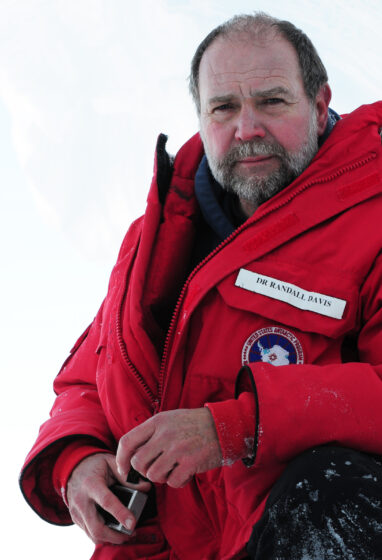 Dr. Randall Davis is a Regents Professor at Texas A&M University. His research focuses on physiological and ecological adaptations of marine mammals for aquatic life. He has emphasized the importance of studying marine mammals in their natural environment and has spent many years developing animal-borne instruments to better understand their behavior, physiology, and ecology. He has trained over 20 doctoral students with the goal of diversity and inclusiveness. In addition, he has engaged in research, education, and conservation efforts to mitigate the detrimental effects of oil spills on marine mammals and advises the oil industry and state and federal agencies on oil spill contingency planning and response. His academic endeavors and over 100 research expeditions have taken him to 64 countries and territories on seven continents and all the world’s oceans. This experience has given him a broad perspective of marine mammal science, its achievements, and future challenges.
Dr. Randall Davis is a Regents Professor at Texas A&M University. His research focuses on physiological and ecological adaptations of marine mammals for aquatic life. He has emphasized the importance of studying marine mammals in their natural environment and has spent many years developing animal-borne instruments to better understand their behavior, physiology, and ecology. He has trained over 20 doctoral students with the goal of diversity and inclusiveness. In addition, he has engaged in research, education, and conservation efforts to mitigate the detrimental effects of oil spills on marine mammals and advises the oil industry and state and federal agencies on oil spill contingency planning and response. His academic endeavors and over 100 research expeditions have taken him to 64 countries and territories on seven continents and all the world’s oceans. This experience has given him a broad perspective of marine mammal science, its achievements, and future challenges.
As a founding member, I have watched our Society grow in size (2000+) and diversity. Since its formation at the Fourth Biennial Conference in 1981, our leadership has ensured the highest scientific quality and integrity. I contributed to this vision as the Conference Research Chair at the 10th Biennial Conference in 1993 and as Secretary for the Society from 1998-2000. Previous Presidents have worked with our Board to promote the global advancement of marine mammal science, education, conservation, and management. This has been achieved through our biennial conferences, workshops, internationally recognized journal, and support for student members. In addition, our Society has provided scientific information on matters related to the conservation and management of marine mammals. We have achieved much since our inception 41 years ago, and I will continue our distinguished legacy of research, education, and conservation with an emphasis on diversity, equity, and inclusion.
Daniel Palacios, Oregon State University
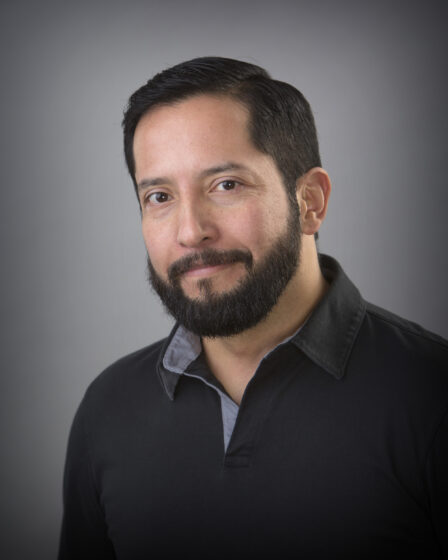 I am currently the Endowed Associate Professor in Whale Habitats at Oregon State University’s Marine Mammal Institute, where I lead the Whale Habitat, Ecology, and Telemetry Laboratory (WHET Lab). My educational background is in Marine Biology (1994, B.Sc., Universidad de Bogotá Jorge Tadeo Lozano) and Oceanography (2003, Ph.D., Oregon State University). I was a NRC Postdoctoral Research Associate based at the NOAA Southwest Fisheries Science Center in Pacific Grove, California (2003-2004), and subsequently a Research Oceanographer at the same location (2004-2013). I was born in Bogotá, Colombia, and moved to the USA to pursue graduate studies. Since 1990, I have attended the biennial Working Meetings of South American Aquatic Mammal Specialists, which later gave rise to SOLAMAC (the Latin American Society of Aquatic Mammal Specialists). I have also participated in several meetings of SOMEMMA (the Mexican Society of Marine Mammalogy). My first SMM Biennial was in Galveston, Texas, in 1993, and I have been a member of SMM since then. Regarding my professional service activities that relate to this position, I have been a member of the Editorial Board of LAJAM (the Latin American Journal of Aquatic Mammals) and served as its Editor-in-Chief between 2009 and 2014. I have also served as a member of the Pacific Scientific Review Group of the U.S. National Marine Fisheries Service, and was also a member of SMM’s Ad-hoc Committee on Diversity and Inclusion. I currently serve as an Associate Editor for Marine Mammal Science, and as a member of the Committee of Scientific Advisors of the U.S. Marine Mammal Commission. Besides my Latin American heritage and perspectives, I identify as a gay man.
I am currently the Endowed Associate Professor in Whale Habitats at Oregon State University’s Marine Mammal Institute, where I lead the Whale Habitat, Ecology, and Telemetry Laboratory (WHET Lab). My educational background is in Marine Biology (1994, B.Sc., Universidad de Bogotá Jorge Tadeo Lozano) and Oceanography (2003, Ph.D., Oregon State University). I was a NRC Postdoctoral Research Associate based at the NOAA Southwest Fisheries Science Center in Pacific Grove, California (2003-2004), and subsequently a Research Oceanographer at the same location (2004-2013). I was born in Bogotá, Colombia, and moved to the USA to pursue graduate studies. Since 1990, I have attended the biennial Working Meetings of South American Aquatic Mammal Specialists, which later gave rise to SOLAMAC (the Latin American Society of Aquatic Mammal Specialists). I have also participated in several meetings of SOMEMMA (the Mexican Society of Marine Mammalogy). My first SMM Biennial was in Galveston, Texas, in 1993, and I have been a member of SMM since then. Regarding my professional service activities that relate to this position, I have been a member of the Editorial Board of LAJAM (the Latin American Journal of Aquatic Mammals) and served as its Editor-in-Chief between 2009 and 2014. I have also served as a member of the Pacific Scientific Review Group of the U.S. National Marine Fisheries Service, and was also a member of SMM’s Ad-hoc Committee on Diversity and Inclusion. I currently serve as an Associate Editor for Marine Mammal Science, and as a member of the Committee of Scientific Advisors of the U.S. Marine Mammal Commission. Besides my Latin American heritage and perspectives, I identify as a gay man.
The SMM Board has a vast portfolio of activities and committees that work for the benefit of the Society’s members. The President and President-elect are key positions in leading the Board in the implementation of these initiatives. My vision is an SMM that continues to advance our science with rigor and impact, while also embracing the global community of diverse professionals from around the world, who represent various identities, voices, and perspectives. Marine mammal professionals today work in incredibly varied roles, from traditional positions in academia, government, and industry, to less traditional ones in non-profits, advisory bodies, tourism, indigenous affairs, etc. One of my goals is to support initiatives across SMM that promote the personal and professional advancement of our members in all of their facets through the identification of allies and role models. My other goal is to continue to magnify our DEI work in a manner that permeates all our activities, so that our global scientific and conservation efforts are rooted in consciousness and compassion.
Secretary
The Secretary keeps and reports minutes of all meetings of the Board of Governors and the business meetings of the general membership. They also receive, process and maintain a complete file of Society correspondence. They also serve on the Board of Governors.
Jeremy Kiszka, Florida International University
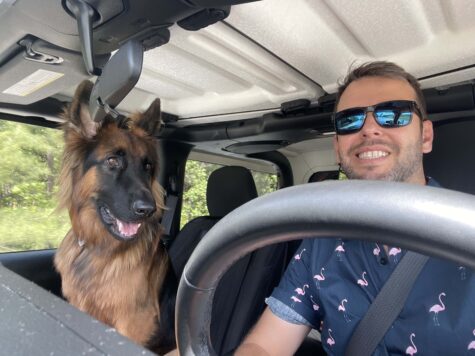
I am an Assistant Professor of Biology at Florida International University, based in Miami, but originally from France. I have been living in Florida for over 10 years now. As a marine ecologist, I study the trophic interactions, ecological roles and function, and behavior of marine mammals (primarily cetaceans and sirenians), particularly in tropical aquatic ecosystems. I also have a strong interest in assessing competitive and operational interactions (e.g., bycatch) between marine mammals and fisheries, and on how environmental changes and disturbances affect their ecology and behavior. I have been a member of the SMM since 2007 and have the pleasure and honor to be the co-chair of the 2022 conference, the first hybrid SMM conference.
As the Secretary of the SMM, I would first and foremost fulfil my duties, as defined by the Society’s Constitution, which includes keeping and reporting minutes of our meetings, maintaining our records and archives, and serve as a Member of Board of Governors. Over the past 3 years, I have been close to the board of the SMM in my position of co-chair of the 2022 conference. Therefore, I think I have a good understanding of the responsibilities as a board member, but also of the needs of our members, and of the changes that our Society needs to achieve, particularly to improve inclusivity and equity. Training is a major component of my work as a researcher and educator, and as a new board member, I will propose a new initiative aiming at building capacity, and offer better training opportunities for students and early-career SMM members, particularly in low-income countries.
Treasurer
The Treasurer’s role is a complex one. The Treasurer will manage all dues and other monies of the Society and maintain accurate accounts of such funds. They will also disburse Society funds upon receipt of proper business invoices covering legitimate Society business expenses. They will also provide a financial statement and projected budget of the Society annually to meetings of the Board of Governors for its review and approval. At the conferences and during intercessional members’ meetings, the Treasurer will prepare and present a complete report of Society finances . They also work with our investment planners and association management group regarding our finances and investments. Finally, they schedule and ensure the conduct of an audit of the Society’s finances at least once every six years.
Nicole Adimey, Business Owner/Contractor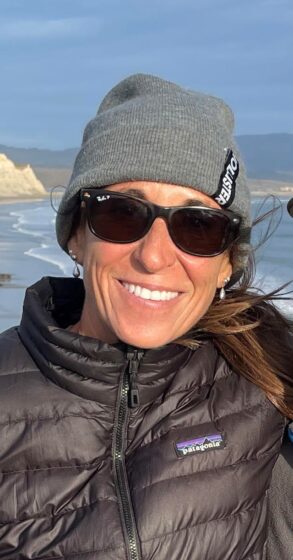
My career with marine mammals began as a graduate student in British Columbia studying the northern resident killer whales. It was there where I met Dr. Mike Bigg who explained the necessity of public support and outreach to marine mammal science. I believe this fortuitous meeting set the stage for my career path. I spent 20 years working with the U.S. Fish and Wildlife Service on species recovery programs and habitat restoration, as well as a year in NMFS-Office of Protected Resources. From killer whales, spinner dolphins, monk seals to Florida manatees, I have worked with diverse groups on a myriad of conservation issues. Over the last several years I have led strategic planning and partnership development efforts, served as an author and reviewer of dozens of grant proposals, and managed multimillion-dollar budgets. Currently I work as a contractor and serve as the president of a non-profit for land conservation.
I have spent 30 years as a working professional benefitting from numerous opportunities the Society have provided to its members. I am now at a point in my career that I have the ability to give back to the Society in a more substantial manner. I would like to join the Board and assist the Society in the organization and management of their fiscal matters. My desire is to collaborate with the Board and other members for further development of strategic planning efforts. Partnering with social scientists and outreach professionals, I hope to assist the Society in building on previous efforts to promote the value of marine mammal conservation and science across the globe. I believe this information is critical to gain further support from the public and governments at large, develop new partnerships and obtain additional funding opportunities.
Dee Allen, Marine Mammal Commission
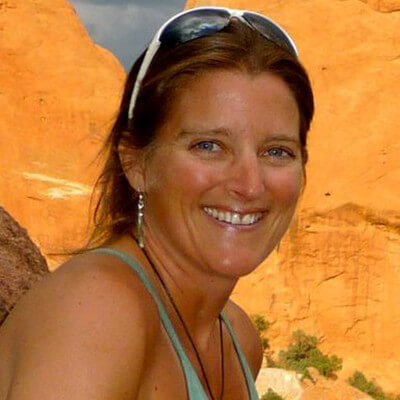 I have been a member of the Society for Marine Mammalogy since 1993. In 2000, I co-founded the SMM Mid-Atlantic Student Chapter and began serving as a Professional Sponsor to the SMM DC Student Chapter in 2015. I currently work with the U.S. Marine Mammal Commission as a Scientific Program Officer and administer their small grant program. I hold an appointment as a Research Associate with the Smithsonian Institution, and I worked for nearly twelve years with the National Museum of Natural History. In addition to my previous position with NOAA’s Alaska Fisheries Science Center, I have had the pleasure to work with many incredible field research teams working in the North Atlantic, North Pacific, and Arctic waters.
I have been a member of the Society for Marine Mammalogy since 1993. In 2000, I co-founded the SMM Mid-Atlantic Student Chapter and began serving as a Professional Sponsor to the SMM DC Student Chapter in 2015. I currently work with the U.S. Marine Mammal Commission as a Scientific Program Officer and administer their small grant program. I hold an appointment as a Research Associate with the Smithsonian Institution, and I worked for nearly twelve years with the National Museum of Natural History. In addition to my previous position with NOAA’s Alaska Fisheries Science Center, I have had the pleasure to work with many incredible field research teams working in the North Atlantic, North Pacific, and Arctic waters.
SMM has played a vital role in every stage of my career development, and I look forward to the opportunity to give back to the Society through service to all members. Building a strong professional network is important to me, and I invest in fostering relationships and bringing people together. My interest in joining the Board is to serve our member community together and to help create the Society our fellow members envision. I am particularly interested in exploring creative mentorship and resource-sharing opportunities, increasing diversity and global representation of the Society’s membership.
Member-at-Large
The Members-at-Large are intended to represent member’s needs and priorities in the Board of Governors’ decision making processes. They often take on the development of new Society activities proposed by the Board if there isn’t a committee that is more appropriate for the task. One of the two Members-at-Large will be designated by the President as Society Parliamentarian. Both Members-at-Large voting members of the Board of Governors.
Katharina Peters, University of Canterbury
 I am a behavioural ecologist with research interests that intersect animal behaviour and distribution, population ecology and evolutionary biology. I am specifically motivated to apply such data to better conserve wild populations and their associated environments. Originally from Germany, I moved to Australia in 2010 to pursue a career in Marine Mammal Ecology via an Honours Degree at Flinders University. Since 2018, I have been working with Prof Karen Stockin at Massey University, New Zealand, across two postdocs and a range of projects focussing on climate change and foraging ecology. After completing a further postdoc at the University of Zurich, Switzerland, with Prof Michael Krützen on the Shark Bay dolphin population, I am currently a postdoctoral researcher at the University of Canterbury, New Zealand, where I work with Dr Michelle LaRue on population dynamics of Weddell seals in the Ross Sea.
I am a behavioural ecologist with research interests that intersect animal behaviour and distribution, population ecology and evolutionary biology. I am specifically motivated to apply such data to better conserve wild populations and their associated environments. Originally from Germany, I moved to Australia in 2010 to pursue a career in Marine Mammal Ecology via an Honours Degree at Flinders University. Since 2018, I have been working with Prof Karen Stockin at Massey University, New Zealand, across two postdocs and a range of projects focussing on climate change and foraging ecology. After completing a further postdoc at the University of Zurich, Switzerland, with Prof Michael Krützen on the Shark Bay dolphin population, I am currently a postdoctoral researcher at the University of Canterbury, New Zealand, where I work with Dr Michelle LaRue on population dynamics of Weddell seals in the Ross Sea.
I am passionate about science communication and mentoring early career researchers (ECRs). The transition from PhD student to fully-fledged researcher is often difficult. While support mechanisms exist for students, there remains limited support for those immediately post PhD. I aim to advocate for ECRs within the society and facilitate opportunities that enable their ongoing professional development. From organising access to courses, creating networking opportunities, and creating mentorship programs, I will instigate initiatives to bring about positive change in this space. This further links to science communication. This has undoubtedly expanded in our society over recent years, and notably across all career stages. My aim as Member at Large would be to further build on this by supporting other board members to increase science and wider communication of our society and its activities.
Jan Roletto, Greater Farallones & Cordell Bank National National Marine Sanctuaries
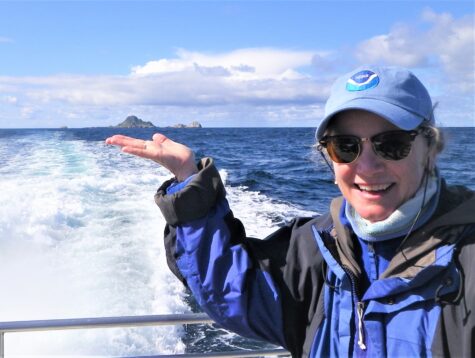 As Research Coordinator for Greater Farallones, Cordell Bank and the northern portion of Monterey Bay National Marine Sanctuaries it is my responsibility to assist marine resource managers in the protection and enhancement of marine and estuarine species within the California Current ecosystem. I promote the restoration and mitigation of marine and estuarine species and habitats through partnering with volunteers, students, independent researchers, academic institutions and other federal and state marine resource protection agencies. I develop, plan and execute complex and integrated projects that provides management information needed for regulatory actions including: Condition Reports, Management Plans, emergency response, natural resource damage assessment, restoration projects, as well as outreach products for students and the public. I identify emerging threats to marine mammals by collecting and synthesizing environmental data to support management actions that will increase resilience from acute and chronic pressures, such as climate impacts.
As Research Coordinator for Greater Farallones, Cordell Bank and the northern portion of Monterey Bay National Marine Sanctuaries it is my responsibility to assist marine resource managers in the protection and enhancement of marine and estuarine species within the California Current ecosystem. I promote the restoration and mitigation of marine and estuarine species and habitats through partnering with volunteers, students, independent researchers, academic institutions and other federal and state marine resource protection agencies. I develop, plan and execute complex and integrated projects that provides management information needed for regulatory actions including: Condition Reports, Management Plans, emergency response, natural resource damage assessment, restoration projects, as well as outreach products for students and the public. I identify emerging threats to marine mammals by collecting and synthesizing environmental data to support management actions that will increase resilience from acute and chronic pressures, such as climate impacts.
Greetings all! As a Member-at-Large, it is my intent to make it easier for members to voice their concerns and interests in Society business and conversation issues. As a Member-at-Large, I will strive to be inclusive and promote the opportunities for multiple voices to be heard from around the globe and to make it easier for you to become engaged in the Society. I have decades of experience mentoring inexperienced volunteers, students, and emerging scientists to be their best, by providing them with opportunities for professional development and personal enrichment. It is my hope to increase our networking within the Society and branch out other marine mammal interest groups, so that we can increase our engagement in the protection of marine mammals and protect the habitats and forage species of and reduce anthropogenic pressures on marine mammals.
Dipani Sutaria, Marine Mammal Research and Conservation Network of India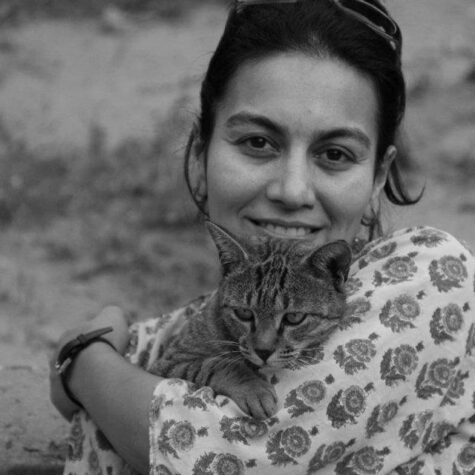
I have research interests in the fields of behavioural ecology, urban ecology, and conservation science. I started studying marine megafauna in India in the late 1990’s, after which I focused on cetaceans and their habitats for my MS and PhD. I am an Adjunct Research Fellow at James Cook University, Australia. I am also a Visiting Faculty member at CEPT University, Ahmedabad; a member of the IUCN Cetacean Specialist Group; the Marine Mammal Protected Areas Taskforce, and the International Relations Committee of the SMM. Along with my colleagues, I curate the website www.marinemammals.in that includes a publicly available database of strandings and sightings. I have been mentoring and supporting young researchers, artists and conservation practitioners in India as an independent researcher since 2013. In the future I hope to work on the interface of ecosystem management, traditional knowledge and community inclusiveness in research and policy.
The SMM plays key roles in the advancement of marine mammal research and education. It’s activities, including the MMS journal, funding programs and the SMM Conference encourages researchers to become part of the larger community. My journey in 2001 started with support from its earliest members; and my first international talk was at the SMM. If elected as a Member at Large, the position will indirectly let me give back to the Society, and allow me to further strengthen its goals. I would like to see the Society play a larger role in building strengths globally, perhaps on-field experience opportunities, curriculum design for post graduate studies, scholarships for attending advance courses for eg DISTANCE, MARK, PAM. These would incentivise effective research and the development of dedicated marine mammal research labs in south and south east Asia, where data gaps are deep, conservation incentives are low and research opportunities are fewer.
Student Member-at-Large
The Student Members-at-Large represent the needs and interests of the Society’s student membership in Board decisions. They work with students around the globe to foster and maintain active student chapters. They also work to ensure a strong student presence and engagement at biennial conferences.
Joe Day, Savannah State University
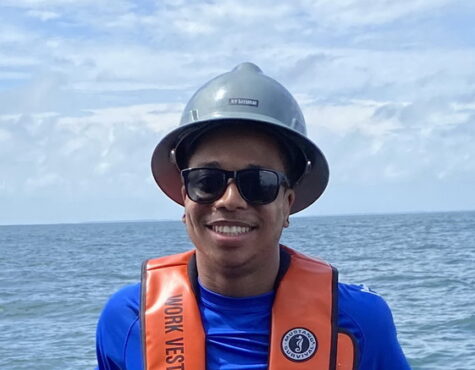 I am a Master’s student at Savannah State University (SSU), a Historically Black College and University (HBCU), advised by Dr. Tara Cox. My thesis research focuses on fine-scale population genetics and photographic identification of common bottlenose dolphins, with the goal of informing management about the complex Bay, Sound, and Estuarine stocks. I first became interested in marine mammalogy during Dr. Cox’s class and then became fascinated with cetaceans during an internship at Duke University Marine Lab in Andy Read’s lab. During this internship, I collaborated with Cascadia Research Collective as well as Duke and learned the value of research networks. I am now working with Dr. Eric Archer at NOAA’s Southwest Fisheries Science Center to gather a deeper understanding of population dynamics and strengthen my research opportunities. I joined the Society for Marine Mammalogy in 2020 and recently presented/attended at my SMM conference in West Palm Beach, FL (SMM 2022).
I am a Master’s student at Savannah State University (SSU), a Historically Black College and University (HBCU), advised by Dr. Tara Cox. My thesis research focuses on fine-scale population genetics and photographic identification of common bottlenose dolphins, with the goal of informing management about the complex Bay, Sound, and Estuarine stocks. I first became interested in marine mammalogy during Dr. Cox’s class and then became fascinated with cetaceans during an internship at Duke University Marine Lab in Andy Read’s lab. During this internship, I collaborated with Cascadia Research Collective as well as Duke and learned the value of research networks. I am now working with Dr. Eric Archer at NOAA’s Southwest Fisheries Science Center to gather a deeper understanding of population dynamics and strengthen my research opportunities. I joined the Society for Marine Mammalogy in 2020 and recently presented/attended at my SMM conference in West Palm Beach, FL (SMM 2022).
I am interested in becoming a Student Member-at-Large (SMaL) because of my unique academic progression and peer mentorship roles I have completed thus far. I have served in several mentoring roles as an undergraduate and graduate student. I have been able to mentor students of different ethnicities and cultures. Marine mammalogy is sadly not a diverse field, and some underrepresented communities are not prevalent. The lack of diversity can be a problem for marine conservation as human ecology plays a huge part in advocating change. As an African American with my HBCU background, I can reach and appeal to underrepresented communities. Peer mentorship can be important in inspiring these underrepresented communities and give these young scientists a mentor that is closer to their generation. Hopefully, with my election I can mentor the next generation and give them the guidance to develop research networks to make valuable contributions in the field.
Clinton Factheu, University of Yaoundé
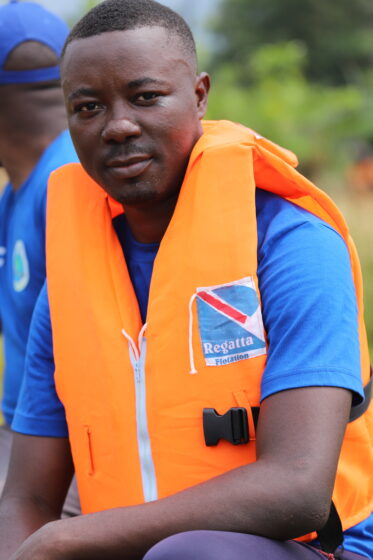
I am a third year PhD student at the Department of Animal Biology and Physiology of the University of Yaoundé 1 in Cameroon. My thesis focuses on the African manatee acoustics and genetics. I also work with the African marine mammal conservation organization – AMMCO (www.ammco.org), a local NGO dedicated to the conservation of Cameroon and Central Africa’s aquatic megafauna and their habitat.
By joining the Board, I plan to contribute more actively to the governance of the society. My goals are to make students’ voice louder when taking decisions, to promote marine mammalogy in African universities and to encourage African students to join the society. Personally, I hope to gain experience in the administration of a society and the organization of an international conference.
Sophia Volzke, University of Tasmania
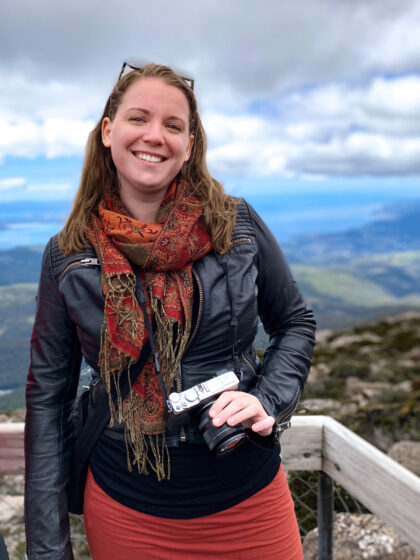 I grew up in Berlin, Germany. After finishing high school in 2010, I moved to Australia with the intent to travel. But as life so happens, this holiday turned into an application for permanent residency and eventually dual citizenship. These days, I get to travel to Germany to visit my family. My academic career started at UQ in Brisbane with a BSc majoring in tropical marine biology. I developed a passion for statistical analyses with a special interest in modelling climate influences on ecosystems. In 2018, I moved to the Hobart to study at the Institute of Marine and Antarctic Studies (IMAS). My honours project ‘Climate influences on female survival in a declining population of southern elephant seals’ was published in 2021. This research gained the highest achievement award of the 2020 IMAS Honours program and the topic has been extended into a PhD project, which I am currently undertaking.
I grew up in Berlin, Germany. After finishing high school in 2010, I moved to Australia with the intent to travel. But as life so happens, this holiday turned into an application for permanent residency and eventually dual citizenship. These days, I get to travel to Germany to visit my family. My academic career started at UQ in Brisbane with a BSc majoring in tropical marine biology. I developed a passion for statistical analyses with a special interest in modelling climate influences on ecosystems. In 2018, I moved to the Hobart to study at the Institute of Marine and Antarctic Studies (IMAS). My honours project ‘Climate influences on female survival in a declining population of southern elephant seals’ was published in 2021. This research gained the highest achievement award of the 2020 IMAS Honours program and the topic has been extended into a PhD project, which I am currently undertaking.
My path to university was not as linear as usually expected. While waiting for permanent residency in Australia, I worked five+ years in full-time roles within small business administration and management. Nowadays, I constantly draw upon the core skills I developed through this experience. I held managerial roles in the hospitality sector, where I organised functions and events, coordinated a team of staff and handled accounts, finances as well as digital marketing. For a small business, being a manager really does entail everything from quick problem solving or handyman duties to cashing off the tills at the end of the night. Besides that, I have a passion for creative design, photography and programming. For me, any opportunity to apply these skills to a scientific cause is a dream come true. My personal motivation is to network, foster connections with fellow researchers and inspire international collaboration. Thank you for your consideration!
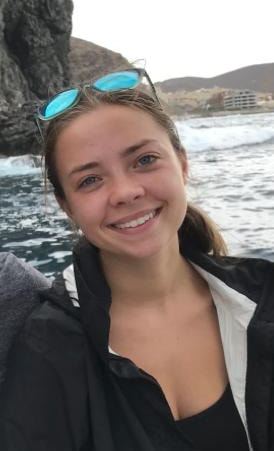 Congratulations to Emma Chereskin for winning the Louis M Herman Research Scholarship 2024 for her proposal;
Congratulations to Emma Chereskin for winning the Louis M Herman Research Scholarship 2024 for her proposal;
 Greetings SMM Members!
Greetings SMM Members! I am a professor in marine megafauna conservation at Newcastle University, UK. I have devoted my career to conservation of data poor species and development of low-cost methods for assessment and threat mitigation. I have developed and trial (in Brazil and Peru) upcycled glass and plastic bottles as no-cost methods to reduce dolphin bycatch in gillnet fisheries and develop low-cost PAM systems that send data back to land. I assessed porpoises in Sweden for my PhD while researching porpoises and dolphins in Canada & Australia. In 1998, I launched a project in Zanzibar training East African and international students to assess marine mammals and small-scale fisheries. I lead similar work in Cambodia, Indonesia & Thailand and conduct research on spotted seals in China and marine mammals off Newcastle. I am a member of the IUCN Cetacean Specialist Group and on the Expert Panel for IWC’s Bycatch Mitigation Initiative.
I am a professor in marine megafauna conservation at Newcastle University, UK. I have devoted my career to conservation of data poor species and development of low-cost methods for assessment and threat mitigation. I have developed and trial (in Brazil and Peru) upcycled glass and plastic bottles as no-cost methods to reduce dolphin bycatch in gillnet fisheries and develop low-cost PAM systems that send data back to land. I assessed porpoises in Sweden for my PhD while researching porpoises and dolphins in Canada & Australia. In 1998, I launched a project in Zanzibar training East African and international students to assess marine mammals and small-scale fisheries. I lead similar work in Cambodia, Indonesia & Thailand and conduct research on spotted seals in China and marine mammals off Newcastle. I am a member of the IUCN Cetacean Specialist Group and on the Expert Panel for IWC’s Bycatch Mitigation Initiative. I am a Professor of Marine Ecology & Conservation Biology at the University of Auckland – Waipapa Taumata Rau, in New Zealand – Aotearoa. My research spans the tropics to Antarctica, oceanic and coastal waters, big cities to remote islands, using multi-disciplinary approaches with many collaborators. I have several leadership roles nationally and internationally and always take a pragmatic approach, with the animals at the centre of all my work. I always work with others, thinking creatively, and integrating research approaches, critical components for success. I actively support our future – the students and emerging researchers. I’ve been a SMM member since 1991, am on the IUCN – SSC and Marine Mammal Protected Areas Task Force, co-ordinate the Humpback Connectivity SORP – IWC project, co-founded the MAUI63 Trust, and work with Indigenous communities. I juggle work with a busy home life – family, dog, sport – and the occasional, much needed field trip to remote places.
I am a Professor of Marine Ecology & Conservation Biology at the University of Auckland – Waipapa Taumata Rau, in New Zealand – Aotearoa. My research spans the tropics to Antarctica, oceanic and coastal waters, big cities to remote islands, using multi-disciplinary approaches with many collaborators. I have several leadership roles nationally and internationally and always take a pragmatic approach, with the animals at the centre of all my work. I always work with others, thinking creatively, and integrating research approaches, critical components for success. I actively support our future – the students and emerging researchers. I’ve been a SMM member since 1991, am on the IUCN – SSC and Marine Mammal Protected Areas Task Force, co-ordinate the Humpback Connectivity SORP – IWC project, co-founded the MAUI63 Trust, and work with Indigenous communities. I juggle work with a busy home life – family, dog, sport – and the occasional, much needed field trip to remote places. Dr. Randall Davis is a Regents Professor at Texas A&M University. His research focuses on physiological and ecological adaptations of marine mammals for aquatic life. He has emphasized the importance of studying marine mammals in their natural environment and has spent many years developing animal-borne instruments to better understand their behavior, physiology, and ecology. He has trained over 20 doctoral students with the goal of diversity and inclusiveness. In addition, he has engaged in research, education, and conservation efforts to mitigate the detrimental effects of oil spills on marine mammals and advises the oil industry and state and federal agencies on oil spill contingency planning and response. His academic endeavors and over 100 research expeditions have taken him to 64 countries and territories on seven continents and all the world’s oceans. This experience has given him a broad perspective of marine mammal science, its achievements, and future challenges.
Dr. Randall Davis is a Regents Professor at Texas A&M University. His research focuses on physiological and ecological adaptations of marine mammals for aquatic life. He has emphasized the importance of studying marine mammals in their natural environment and has spent many years developing animal-borne instruments to better understand their behavior, physiology, and ecology. He has trained over 20 doctoral students with the goal of diversity and inclusiveness. In addition, he has engaged in research, education, and conservation efforts to mitigate the detrimental effects of oil spills on marine mammals and advises the oil industry and state and federal agencies on oil spill contingency planning and response. His academic endeavors and over 100 research expeditions have taken him to 64 countries and territories on seven continents and all the world’s oceans. This experience has given him a broad perspective of marine mammal science, its achievements, and future challenges. I am currently the Endowed Associate Professor in Whale Habitats at Oregon State University’s Marine Mammal Institute, where I lead the Whale Habitat, Ecology, and Telemetry Laboratory (WHET Lab). My educational background is in Marine Biology (1994, B.Sc., Universidad de Bogotá Jorge Tadeo Lozano) and Oceanography (2003, Ph.D., Oregon State University). I was a NRC Postdoctoral Research Associate based at the NOAA Southwest Fisheries Science Center in Pacific Grove, California (2003-2004), and subsequently a Research Oceanographer at the same location (2004-2013). I was born in Bogotá, Colombia, and moved to the USA to pursue graduate studies. Since 1990, I have attended the biennial Working Meetings of South American Aquatic Mammal Specialists, which later gave rise to SOLAMAC (the Latin American Society of Aquatic Mammal Specialists). I have also participated in several meetings of SOMEMMA (the Mexican Society of Marine Mammalogy). My first SMM Biennial was in Galveston, Texas, in 1993, and I have been a member of SMM since then. Regarding my professional service activities that relate to this position, I have been a member of the Editorial Board of LAJAM (the Latin American Journal of Aquatic Mammals) and served as its Editor-in-Chief between 2009 and 2014. I have also served as a member of the Pacific Scientific Review Group of the U.S. National Marine Fisheries Service, and was also a member of SMM’s Ad-hoc Committee on Diversity and Inclusion. I currently serve as an Associate Editor for Marine Mammal Science, and as a member of the Committee of Scientific Advisors of the U.S. Marine Mammal Commission. Besides my Latin American heritage and perspectives, I identify as a gay man.
I am currently the Endowed Associate Professor in Whale Habitats at Oregon State University’s Marine Mammal Institute, where I lead the Whale Habitat, Ecology, and Telemetry Laboratory (WHET Lab). My educational background is in Marine Biology (1994, B.Sc., Universidad de Bogotá Jorge Tadeo Lozano) and Oceanography (2003, Ph.D., Oregon State University). I was a NRC Postdoctoral Research Associate based at the NOAA Southwest Fisheries Science Center in Pacific Grove, California (2003-2004), and subsequently a Research Oceanographer at the same location (2004-2013). I was born in Bogotá, Colombia, and moved to the USA to pursue graduate studies. Since 1990, I have attended the biennial Working Meetings of South American Aquatic Mammal Specialists, which later gave rise to SOLAMAC (the Latin American Society of Aquatic Mammal Specialists). I have also participated in several meetings of SOMEMMA (the Mexican Society of Marine Mammalogy). My first SMM Biennial was in Galveston, Texas, in 1993, and I have been a member of SMM since then. Regarding my professional service activities that relate to this position, I have been a member of the Editorial Board of LAJAM (the Latin American Journal of Aquatic Mammals) and served as its Editor-in-Chief between 2009 and 2014. I have also served as a member of the Pacific Scientific Review Group of the U.S. National Marine Fisheries Service, and was also a member of SMM’s Ad-hoc Committee on Diversity and Inclusion. I currently serve as an Associate Editor for Marine Mammal Science, and as a member of the Committee of Scientific Advisors of the U.S. Marine Mammal Commission. Besides my Latin American heritage and perspectives, I identify as a gay man.

 I have been a member of the Society for Marine Mammalogy since 1993. In 2000, I co-founded the SMM Mid-Atlantic Student Chapter and began serving as a Professional Sponsor to the SMM DC Student Chapter in 2015. I currently work with the U.S. Marine Mammal Commission as a Scientific Program Officer and administer their small grant program. I hold an appointment as a Research Associate with the Smithsonian Institution, and I worked for nearly twelve years with the National Museum of Natural History. In addition to my previous position with NOAA’s Alaska Fisheries Science Center, I have had the pleasure to work with many incredible field research teams working in the North Atlantic, North Pacific, and Arctic waters.
I have been a member of the Society for Marine Mammalogy since 1993. In 2000, I co-founded the SMM Mid-Atlantic Student Chapter and began serving as a Professional Sponsor to the SMM DC Student Chapter in 2015. I currently work with the U.S. Marine Mammal Commission as a Scientific Program Officer and administer their small grant program. I hold an appointment as a Research Associate with the Smithsonian Institution, and I worked for nearly twelve years with the National Museum of Natural History. In addition to my previous position with NOAA’s Alaska Fisheries Science Center, I have had the pleasure to work with many incredible field research teams working in the North Atlantic, North Pacific, and Arctic waters. I am a behavioural ecologist with research interests that intersect animal behaviour and distribution, population ecology and evolutionary biology. I am specifically motivated to apply such data to better conserve wild populations and their associated environments. Originally from Germany, I moved to Australia in 2010 to pursue a career in Marine Mammal Ecology via an Honours Degree at Flinders University. Since 2018, I have been working with Prof Karen Stockin at Massey University, New Zealand, across two postdocs and a range of projects focussing on climate change and foraging ecology. After completing a further postdoc at the University of Zurich, Switzerland, with Prof Michael Krützen on the Shark Bay dolphin population, I am currently a postdoctoral researcher at the University of Canterbury, New Zealand, where I work with Dr Michelle LaRue on population dynamics of Weddell seals in the Ross Sea.
I am a behavioural ecologist with research interests that intersect animal behaviour and distribution, population ecology and evolutionary biology. I am specifically motivated to apply such data to better conserve wild populations and their associated environments. Originally from Germany, I moved to Australia in 2010 to pursue a career in Marine Mammal Ecology via an Honours Degree at Flinders University. Since 2018, I have been working with Prof Karen Stockin at Massey University, New Zealand, across two postdocs and a range of projects focussing on climate change and foraging ecology. After completing a further postdoc at the University of Zurich, Switzerland, with Prof Michael Krützen on the Shark Bay dolphin population, I am currently a postdoctoral researcher at the University of Canterbury, New Zealand, where I work with Dr Michelle LaRue on population dynamics of Weddell seals in the Ross Sea. As Research Coordinator for Greater Farallones, Cordell Bank and the northern portion of Monterey Bay National Marine Sanctuaries it is my responsibility to assist marine resource managers in the protection and enhancement of marine and estuarine species within the California Current ecosystem. I promote the restoration and mitigation of marine and estuarine species and habitats through partnering with volunteers, students, independent researchers, academic institutions and other federal and state marine resource protection agencies. I develop, plan and execute complex and integrated projects that provides management information needed for regulatory actions including: Condition Reports, Management Plans, emergency response, natural resource damage assessment, restoration projects, as well as outreach products for students and the public. I identify emerging threats to marine mammals by collecting and synthesizing environmental data to support management actions that will increase resilience from acute and chronic pressures, such as climate impacts.
As Research Coordinator for Greater Farallones, Cordell Bank and the northern portion of Monterey Bay National Marine Sanctuaries it is my responsibility to assist marine resource managers in the protection and enhancement of marine and estuarine species within the California Current ecosystem. I promote the restoration and mitigation of marine and estuarine species and habitats through partnering with volunteers, students, independent researchers, academic institutions and other federal and state marine resource protection agencies. I develop, plan and execute complex and integrated projects that provides management information needed for regulatory actions including: Condition Reports, Management Plans, emergency response, natural resource damage assessment, restoration projects, as well as outreach products for students and the public. I identify emerging threats to marine mammals by collecting and synthesizing environmental data to support management actions that will increase resilience from acute and chronic pressures, such as climate impacts.
 I am a Master’s student at Savannah State University (SSU), a Historically Black College and University (HBCU), advised by Dr. Tara Cox. My thesis research focuses on fine-scale population genetics and photographic identification of common bottlenose dolphins, with the goal of informing management about the complex Bay, Sound, and Estuarine stocks. I first became interested in marine mammalogy during Dr. Cox’s class and then became fascinated with cetaceans during an internship at Duke University Marine Lab in Andy Read’s lab. During this internship, I collaborated with Cascadia Research Collective as well as Duke and learned the value of research networks. I am now working with Dr. Eric Archer at NOAA’s Southwest Fisheries Science Center to gather a deeper understanding of population dynamics and strengthen my research opportunities. I joined the Society for Marine Mammalogy in 2020 and recently presented/attended at my SMM conference in West Palm Beach, FL (SMM 2022).
I am a Master’s student at Savannah State University (SSU), a Historically Black College and University (HBCU), advised by Dr. Tara Cox. My thesis research focuses on fine-scale population genetics and photographic identification of common bottlenose dolphins, with the goal of informing management about the complex Bay, Sound, and Estuarine stocks. I first became interested in marine mammalogy during Dr. Cox’s class and then became fascinated with cetaceans during an internship at Duke University Marine Lab in Andy Read’s lab. During this internship, I collaborated with Cascadia Research Collective as well as Duke and learned the value of research networks. I am now working with Dr. Eric Archer at NOAA’s Southwest Fisheries Science Center to gather a deeper understanding of population dynamics and strengthen my research opportunities. I joined the Society for Marine Mammalogy in 2020 and recently presented/attended at my SMM conference in West Palm Beach, FL (SMM 2022).
 I grew up in Berlin, Germany. After finishing high school in 2010, I moved to Australia with the intent to travel. But as life so happens, this holiday turned into an application for permanent residency and eventually dual citizenship. These days, I get to travel to Germany to visit my family. My academic career started at UQ in Brisbane with a BSc majoring in tropical marine biology. I developed a passion for statistical analyses with a special interest in modelling climate influences on ecosystems. In 2018, I moved to the Hobart to study at the Institute of Marine and Antarctic Studies (IMAS). My honours project ‘Climate influences on female survival in a declining population of southern elephant seals’ was published in 2021. This research gained the highest achievement award of the 2020 IMAS Honours program and the topic has been extended into a PhD project, which I am currently undertaking.
I grew up in Berlin, Germany. After finishing high school in 2010, I moved to Australia with the intent to travel. But as life so happens, this holiday turned into an application for permanent residency and eventually dual citizenship. These days, I get to travel to Germany to visit my family. My academic career started at UQ in Brisbane with a BSc majoring in tropical marine biology. I developed a passion for statistical analyses with a special interest in modelling climate influences on ecosystems. In 2018, I moved to the Hobart to study at the Institute of Marine and Antarctic Studies (IMAS). My honours project ‘Climate influences on female survival in a declining population of southern elephant seals’ was published in 2021. This research gained the highest achievement award of the 2020 IMAS Honours program and the topic has been extended into a PhD project, which I am currently undertaking.